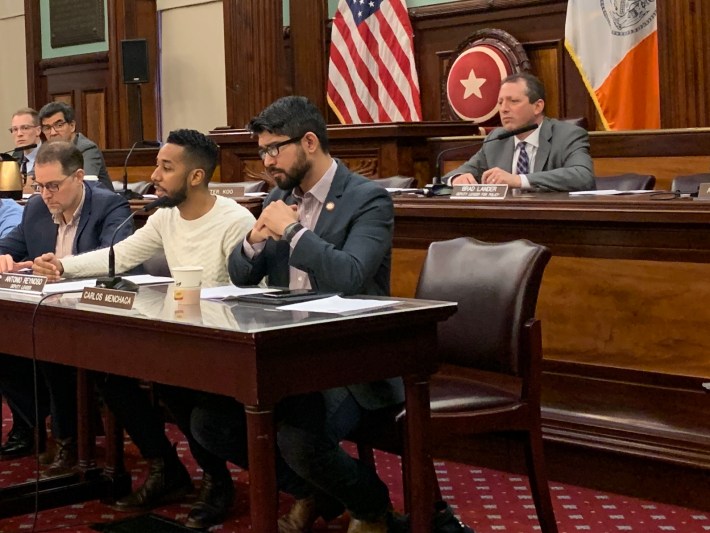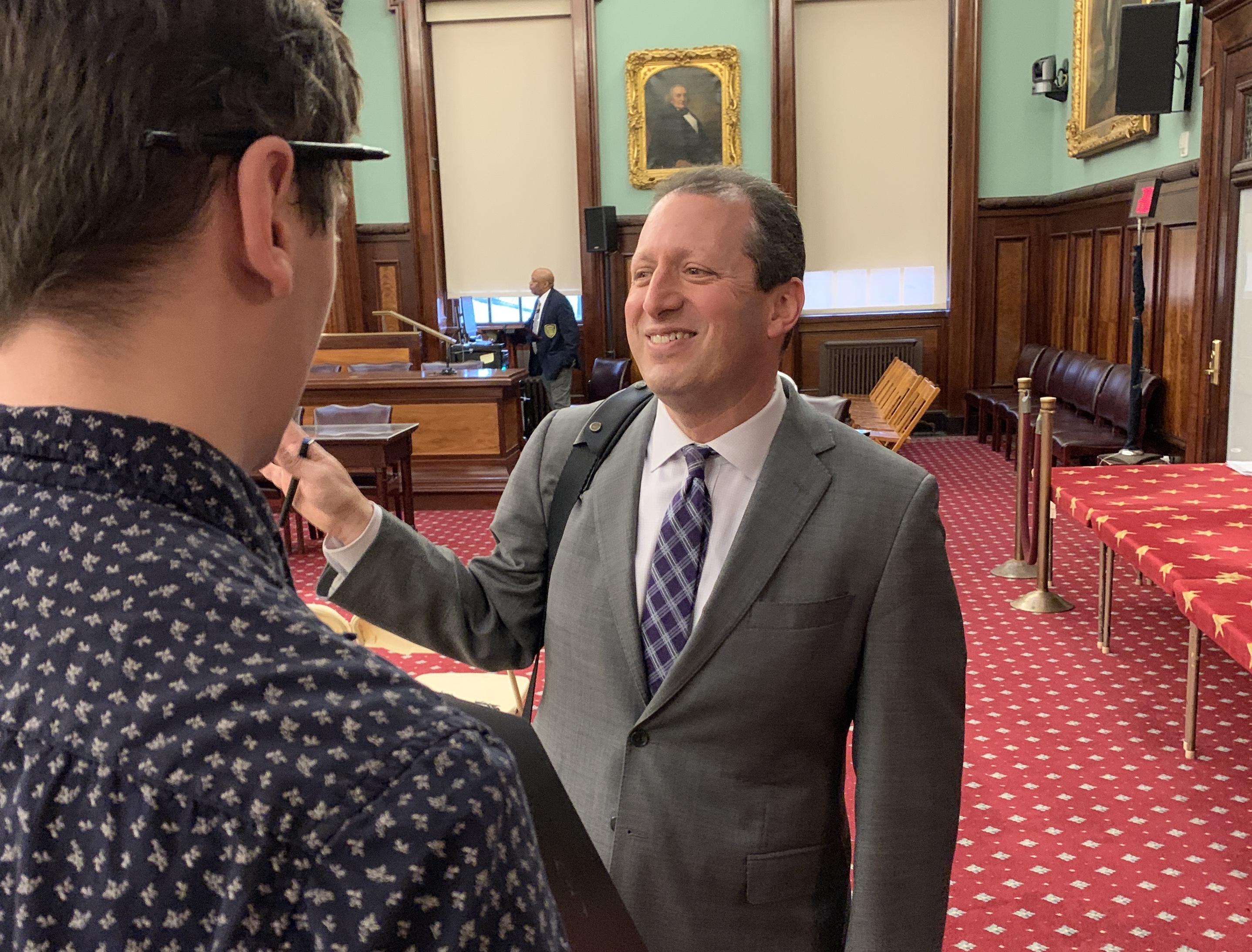A Council bill that would require the worst 5,000 drivers in the city to undergo a driver's education course or lose their cars moved forward on Monday before its an expected passage tomorrow — but not before two supportive council members took shots at the bill for not going far enough.
Before Brad Lander's "Reckless Driver Accountability Act" passed the Transportation Committee by an 8-1 vote, Council Members Carlos Menchaca of Sunset Park and Antonio Reynosos of Bushwick complained that the bill — the result of a compromise between Lander and the de Blasio administration — now only covers one-fifth as many reckless drivers as the original proposal unveiled by Lander in 2018.
"As legislators [we must] ensure that everything that can be done should be done," said Menchaca, who described himself as "someone who represents a district that has experienced immense violence on the roads with reckless drivers."
The bill originally required all drivers who had received five or more camera-issued speeding or red light tickets in a year to undergo a driver education course or have their car seized by the county sheriff. Given the expansion in speed camera installation, such a threshold would currently cover 26,000 cars. But the latest version of the bill raises the threshold to five red light tickets or 15 speeding tickets, meaning a driver can have four red light tickets and 14 speeding tickets in any 12-month period and not be held accountable.
It would cover about 5,000 drivers once all of the city's speed cameras are installed by the end of the year, Lander estimated.

Menchaca called that "concerning."
"There is no doubt that this work is a step forward, but we have time to push," he said. "I am calling on the advocates to reach out to me to explain more about how we can push this even further before we get on the floor of the city council." (Advocates have been supporting the bill, even the compromise bill, steadfastly.)
Reynoso, who voted yes on the bill, voiced similar concerns.
"I feel like 5,000 of the worst drivers simply shouldn't be able to drive. And I don't think that's a tall order," he said. "Then, after that, say the next 10,000 or 20,000 drivers should have a restorative justice element [with] education."
He blasted the de Blasio administration for treating the Lander bill as a function of limited existing capacity rather than creating more capacity so the bill could hold accountable more of the city's worst drivers.
"My concern is that if this is considered a monumental bill, then the stuff I want to get done is dead on arrival," he said. "It stops the movement."
It's telling that no one raised any objection to the merits of the bill, but merely that did not go far enough. No one complained about the nature of speed camera enforcement, for example, an argument that may come up from pro-car council members on Tuesday. The specious argument that speed camera tickets are "unconstitutional" was certainly raised by driver lobbyist Sheila Dunn in a New York Times story on Monday.
So Lander was pleased that the bill passed handily and will almost certainly pass the full Council on Tuesday. But as he did over the weekend in an epic Twitter thread, he also addressed Menchaca and Reynoso's concerns — specifically that the program is smaller than it should be.
"What we're doing here is groundbreaking. No one else in the country is doing it. And the responsibility to do it right in a way that works is high," he told reporters after. "I'd like to say, 'Let's just take everyone's car away and no one would be killed in traffic crashes!' But we have to do this in a way that stands constitutional scrutiny or we'd have no program at all, and we have to do it in a way that works so that when we expand it, we have real evidence to show that it's working.
"You can't just wave your hand and say, 'Let's do it for 20,000 cars!' Five thousand cars is a lot of cars."
He also pointed out the underlying logistics of the bill: the Red Hook Community Justice Center, which will likely provide some of the driver education courses required under the bill, has re-educated 500 drivers in five years.
"We know it works at that scale, but this is a big expansion," Lander said. "And everyone wants government to deliver on its promises, so it doesn't help us to say, 'I want it to be bigger.' So doing it in a way that can be successful, that we can study, we can understand, we can tweak, that we can expand, is the smart way to make this policy."






